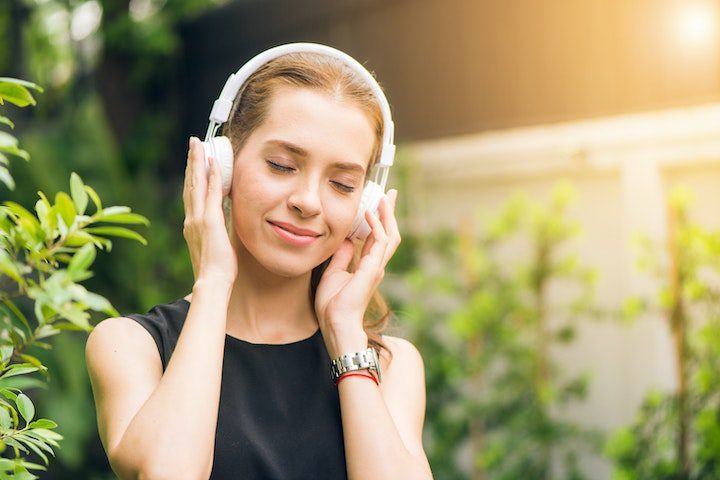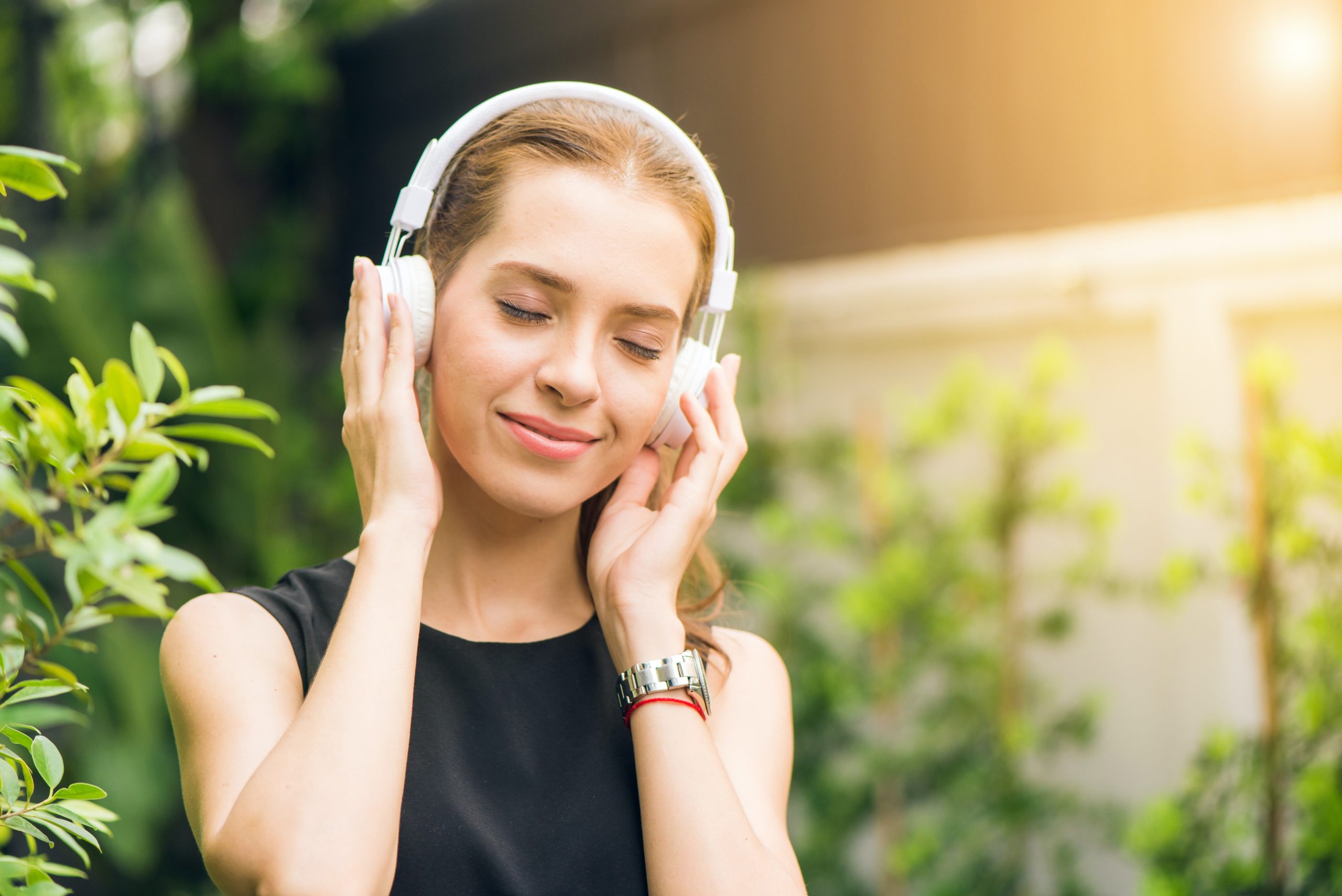
No matter what type of music you usually enjoy, one thing is certain: to be healthier, you need to listen to more of it! Research indicates that music improves our mood in numerous ways, so if you have access to such an enjoyable boost, why not take advantage of it as often as possible?
Why Science Says Music Is Good for Us
It’s encouraging to have something so accessible that provides incredible benefits. And with all the streaming services, YouTube, and other online outlets, there are dozens of ways to explore new sounds and old favorites. But how does music boost your mood?
It Stimulates the Brain’s Reward Center
Shahram Heshmat, Ph.D., writes for Psychology Today that “the same brain-chemical system that enables feelings of pleasure from sex, addictive drugs, money, and food is also critical to experiencing musical pleasure.” It’s possible that when we listen to various types of melodies, the action triggers the release of pleasure-causing substances such as melatonin and norepinephrine.
It Helps Us Cope and Connect
The Max Planck Institute for Empirical Aesthetics studied the effects of both listening to music and playing music during the height of the pandemic. Participants in six countries, including the U.S., reported that “people who experienced increased negative emotions due to the pandemic were found to engage with music primarily as a way to regulate depression, fear, and stress, especially via music listening.” Conversely, individuals who felt more positive emotions during that time played music as “a replacement for social interaction… [which] gave them a sense of belonging to a community. Making music, moreover, served as a method for self-reflection.”
The researchers discovered that “coronamusic”—either new compositions or older songs with recrafted lyrics released during the pandemic—had a positive effect on listeners:” the more interested respondents were in coronamusic, the more music listening and making seemed to help them cope emotionally and socially.”
It Directly Impacts Our Mood
The University of Pittsburgh Medical Center (UPMC) states in addition to the brain chemical boost, listening to tunes decreases stress-causing hormone production in the body: “As a result, music therapy has the power to do the following:”
- Reduce stress
- Ease anxiety
- Improve sleep
- Lessen depressed mood
- Create positive mood
- Boost self-confidence
- Increase energy
UPMC also notes that for people struggling with fibromyalgia, researchers use vibroacoustic therapy—physical treatment using sound vibrations— to ease symptoms.
It Provides Comfort
Listening to soothing music, Heshmat adds in his article, “can provide mood repair and a sense of connection…when we feel distressed or lonely.” Further, tunes with lyrics that align with the listener’s personal experience can “give voice to feelings or experiences that one might not be able to express oneself.”
One caveat here: some studies indicate overly nostalgic or sad songs might actually deepen depression. So, if you want music to boost your mood, it’s important to select tracks that counter that effect, such as light classical or jazz, or participate in a drum circle.
Comfort is one reason why music therapy is frequently part of holistic modalities at rehabilitation facilities and mental health centers. Research into the practice shows that individuals with PTSD experience a decrease in anxiety, along with increased self-esteem and a relaxed mind and body. In addition, music therapy can teach effective communication and socialization skills. An individual in a music therapy session often has positive changes in mood as well as physiological responses. Music also influences pain reduction and respiration, which is why it’s often used in post-surgical recovery.
It Unites Us
Healthline points to all the essential ways music helps us form bonds with others, and highlights the following examples, which we provide verbatim:
- National anthems connect crowds at sporting events
- Protest songs stir a sense of shared purpose during marches
- Hymns build group identity in houses of worship
- Love songs help prospective partners bond during courtship
- Lullabies enable parents and infants to develop secure attachments
It Improves Concentration
According to Masha Godkin, a professor in the Department of Marriage and Family Sciences at Northcentral University, the best soundtrack to help you focus and study are tunes that keep you awake but won’t cause you to start tapping your body to the beat. “Music activates both the left and right brain at the same time, and the activation of both hemispheres can maximize learning and improve memory,” she says. Here are her recommendations:
- The soothing sounds of some forms of classical orchestra music seem to increase mood and productivity. New Age and ambient EDM music are other good choices, as they have few or no lyrics.
- Music with 60-70 beats per minute like Beethoven’s Fur Elise appears to “help students study longer and retain more information.”
- Ambient sounds, such as those played in a spa, can help you relax.
- Similarly, a background of babbling brooks, birds, wind and rain are very calming and make great background noise. “You can even create your own mix with websites like Noisli.”
In case you’re wondering, music helped us write this article, too—specifically Apple Music’s “Pure Focus” playlist.
Discover Better Means of Living at Cottonwood de Tucson
If you or someone you love needs behavioral health or substance use disorder treatment in Arizona, we invite you to our 35-acre desert oasis. Here, you’ll not only receive exceptional care from a board-certified staff of experts, but also delve deep into methods of holistic living that provide enrichment long after you return home.




